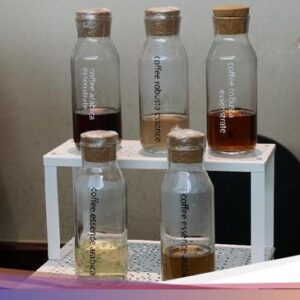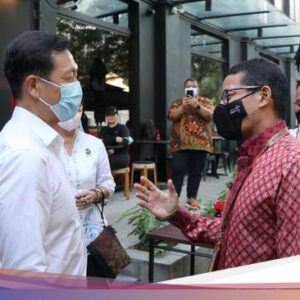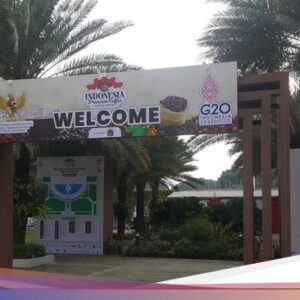Jakarta – For the sake of better environmental sustainability, this young coffee farmer from West Java applies the concept of conservation coffee to coffee plantation.
Starting from the phenomenon of natural destruction that occurred in West Java, Ilham Abdurrahman, a young coffee farmer, implemented coffee conservation. Conservation coffee is the cultivation of coffee by prioritizing the preservation or protection of areas implemented by farmers.
“We discovered the concept of conservation coffee, or more specifically, in agroforest gardens. Well, this agroforest grows coffee in between forest plants. So we created a coffee plantation that was engineered to look like a forest,” said Ilham to detikFood (3/8).
 Photo: dok.detikFood Photo: dok.detikFood |
This young farmer further explained that it was not coffee plantations that were planted in the forest, but forest trees that were planted in the coffee plantations. According to him, 1 hectare coffee plantation must be filled with protective trees.
ADVERTISEMENT
SCROLL TO CONTINUE WITH CONTENT
By applying this concept, it is believed that it can provide benefits for life. Such as ecosystem health, producing humus for organic fertilizer, making the local climate better, as a reservoir for water reserves and can provide nitrogen.
This was conveyed by Ilham at a coffee pairing and coffee cupping event held at Javara Culture, Kemang, South Jakarta (3/8). During the event, Ilham and his friends who are members of the conservation coffee community also introduced various types of coffee from all regions in Indonesia.
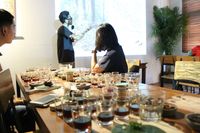 Photo: dok.detikFood Photo: dok.detikFood |
Also Read: The Fun of Touring the Coffee Plantations and Drinking Delicious Coffee at Kampoeng Kopi Banaran
There is Gayo Berijin coffee from Aceh, Bedhaya from Pacet & Latimojong, Buntu Lenta from South Sulawesi, Telagawangi from Garut, Tiba Teing from Flores and many more.
According to Ilham, the diversity of flavors produced by coffee can occur because of the protective trees planted in coffee plantations. Therefore the taste is more complex and varies depending on what type of shade tree is planted.
“It can affect the taste. Apart from that, what influences the taste of coffee depends on the type of coffee itself, the environment and the characteristics of the local community there,” explained Ilham.
 Photo: iStock Photo: iStock |
Usually the type of coffee from West Java tastes more fruity, Sumatran coffee tastes stronger, Sulawesi coffee has a balanced taste and Flores coffee has a strong spice and chocolate taste.
So far, the concept of conservation coffee has been implemented on a large scale by Ilham and his friends in their area of origin, namely in West Java. However, they have also implemented it in the Sulawesi and Bali areas.
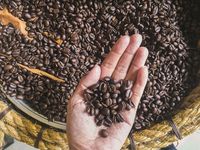 Photo: iStock Photo: iStock |
Environmental preservation doesn’t stop there grow coffee only conservation, but also continues with the coffee waste produced, namely making organic fertilizer from coffee cherry skin.
“Cherry skins can be the best fertilizer mixed with goat manure and soil,” concluded Ilham.
Also Read: Enjoy! This is the character of Tabodo coffee that Jokowi tasted while in Humbang Hasundutan
(raf/odi)

